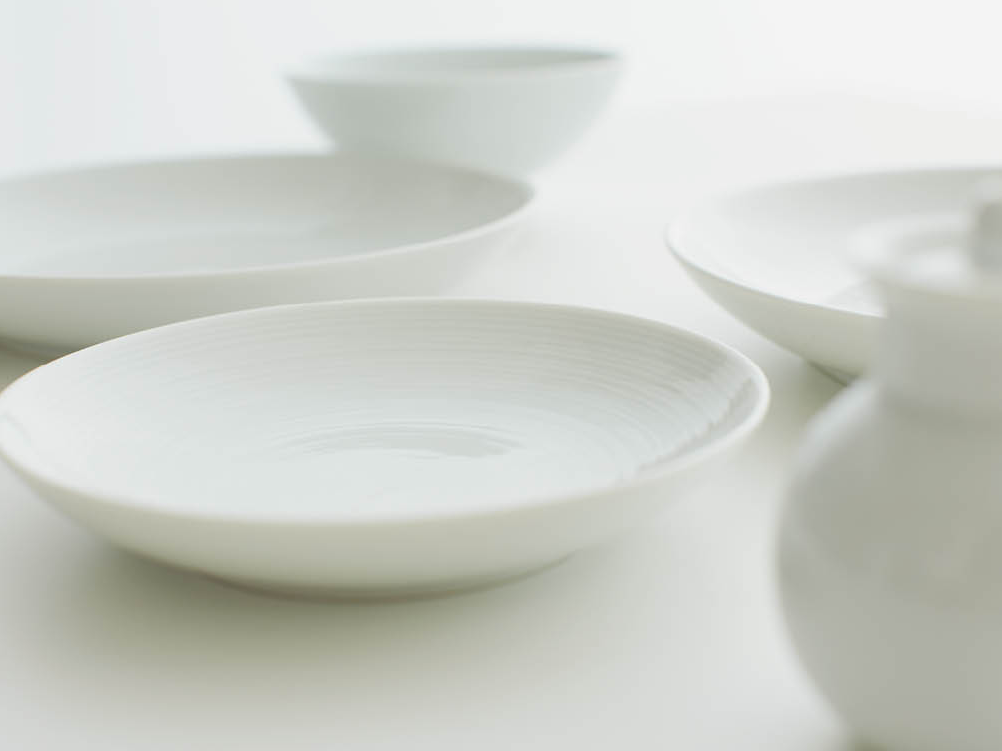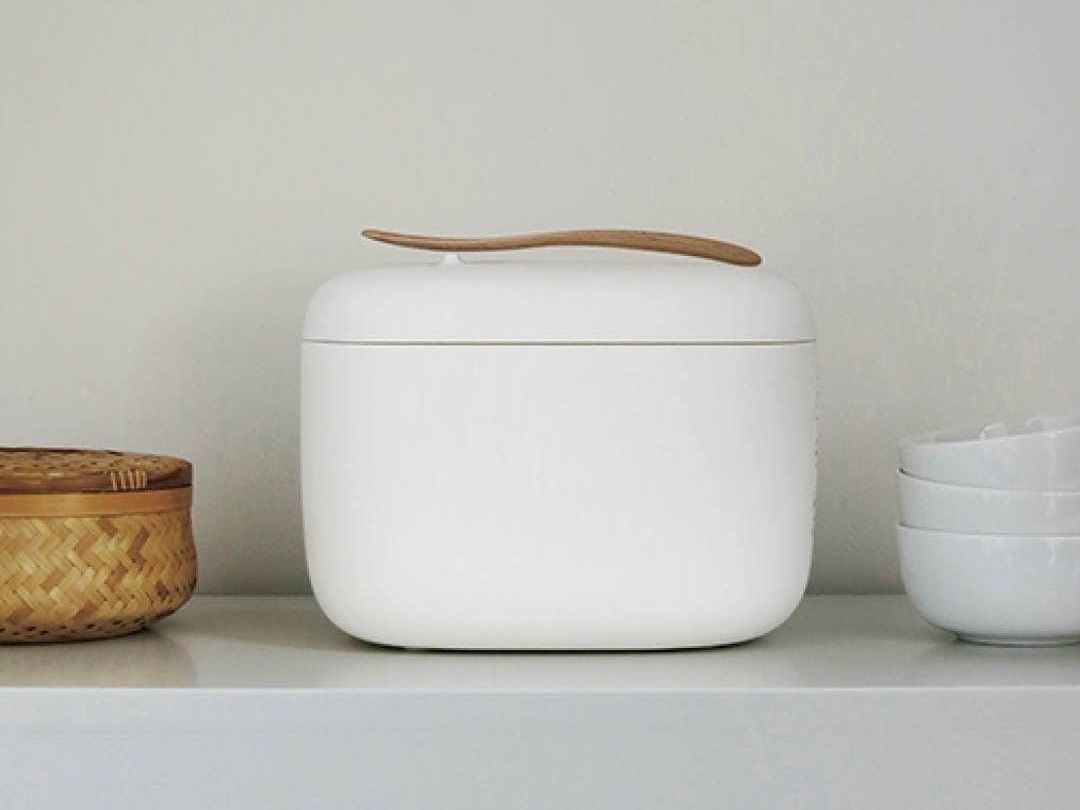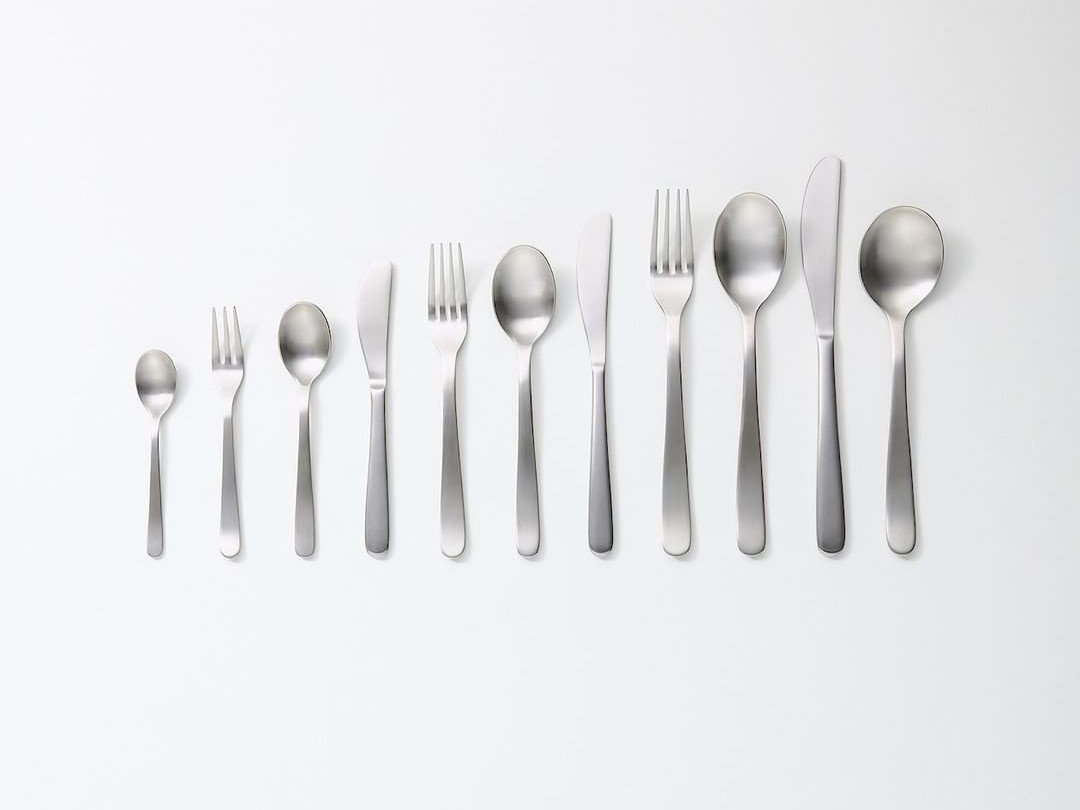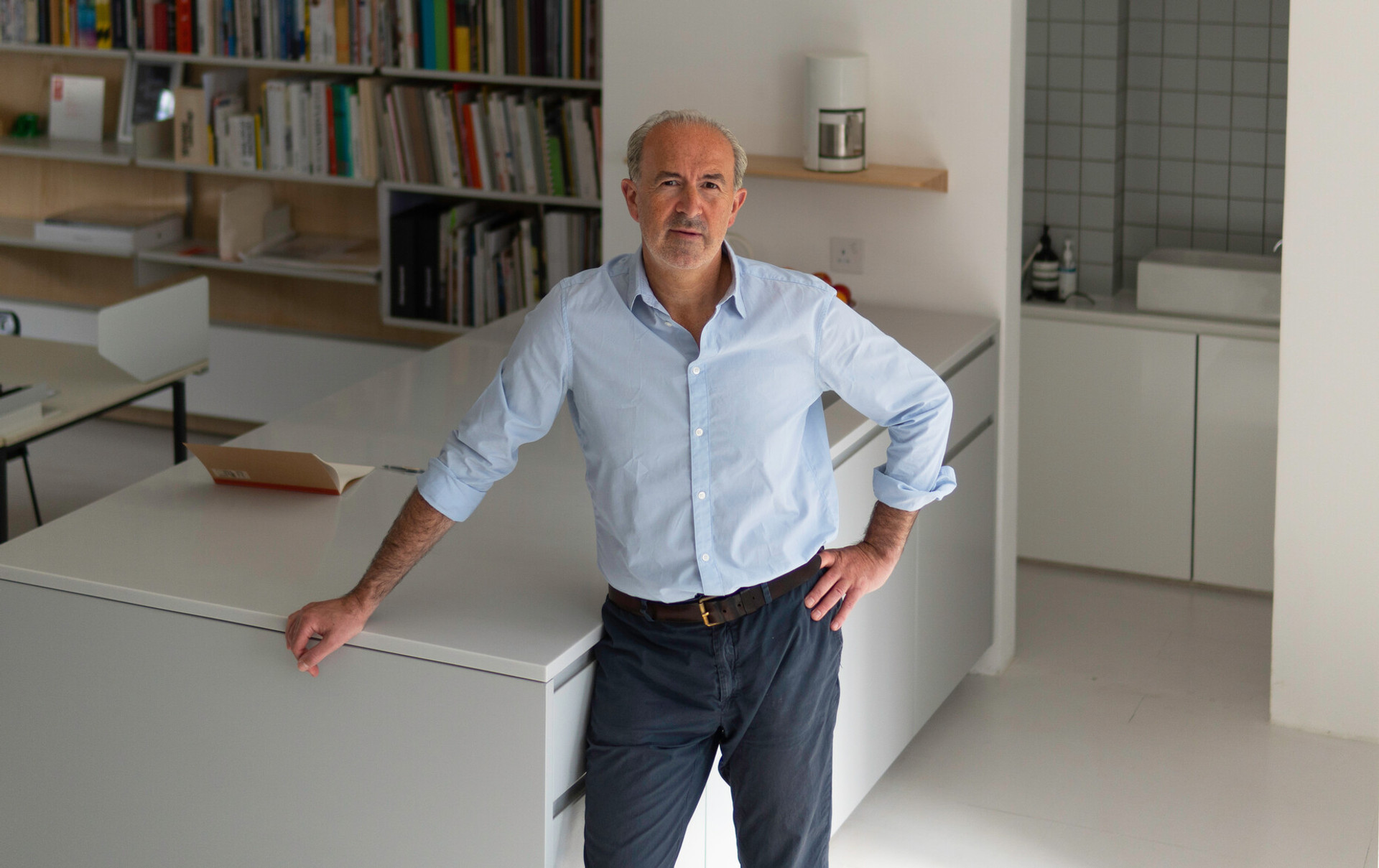MUJI Life from Sam Hecht, Products Designer
MUJI Life: Designer Series
In these strange times, where life as we have known it is shifting to a different place, MUJI remains dedicated to accommodating a good life for its customers, as it has done for more than 40 years. For the past 20, I have been one of the World designers for MUJI, helping to create all sorts of products, and I have witnessed first-hand their desire to exceed customers’ expectations, even in the small things. MUJI’s approach is understood to give 'more' in the long run, even when items may come with 'less' (less branding, less colour or less material used). Over the year I will share some insights into what MUJI cares about and how ‘good’ can even mean ‘great’.

Good enough | MUJI Life vol.1
MUJI like to say ‘Good enough’. This means that the things in their shops are not fleetingly fashionable or pretentious, but instead reflect their function and where they will sit in the home over time. MUJI’s products try not to call attention to themselves, instead standing ready to serve and support. This way, they promote more of a balance in the overall environment of the home. Each one of us is different, and our understanding of what is ‘great’ can vary wildly. However, what is ‘good enough’ is shared by all of us as a baseline of simplicity. A piece of MUJI luggage, a toaster or a storage box can be designed for this baseline of simplicity, and in-so-doing will have a much greater chance of being enjoyed for many years.

Perfect equilibrium | MUJI Life vol.2
MUJI strives to reach an equilibrium of function, aesthetics, material and price in all that they make. If one aspect is out of balance, it might go unnoticed at the beginning, but over time, the development process will reveal it and can be corrected. MUJI learns from different cultures, constantly searching locally and globally for how life and everyday actions can achieve equilibrium. Even something as simple as uncorking a wine bottle is done differently in France, Germany, Portugal and England. Materially, these insights are equally considered in research and testing. If plastics are required because no other material is suitable to reach equilibrium in a product, MUJI ensures that the item will last and give pleasure for a long time.

Essential | MUJI Life vol.3
MUJI items address essential activities at home such as cooking, cleaning, keeping warm or bathing. For clothing, the materials and their cut give an intrinsic comfort and quality, always related to the seasons and activities that it is worn for. MUJI believes every person is already beautiful inside and that clothing should accentuate this beauty, not overshadow it. The same is true for how we cook and prepare meals: for MUJI, the kitchen tools we use should avoid the failure of trying too hard to be everything, and instead enjoy the success of doing one job well, over and over again.

Natural | MUJI Life vol.4
Naturalness can be defined as something that feels just right, not something conscious or calling attention to itself, yet not invisible either. This is something that MUJI always strive for, and that design is for. Success can be measured when a handle, clip, button or zip is operated without someone ever really thinking about it, and when it works every time. There is no manual required or method that needs to be learnt. Its form never gets in the way, but aids its use and pleasure. Already in life, we have grown accustomed to do so much without thinking about it, so there is no need to always invent. No one should need to work out if a chair will support our weight before sitting on it; it is expected. Paying attention to these human expectations is an important part of MUJI's process.

Re-purposeful | MUJI Life vol.5
MUJI has always made sure that their items - particularly storage items - are not tied aesthetically to a specific function but instead can live anywhere at home or at work with dignity. For instance a MUJI wire basket may find itself being used in a wardrobe, but equally some of us may use it in a bathroom or a kitchen. It is up to the customer to decide how their needs are best served. To achieve this requires enormous restraint by the designer in avoiding unnecessary features that may restrict a product's openness. Next, the sizing and material is cross-referenced with the MUJI range of existing everyday items, to maintain this openness. If you think about, most items are already following a system of size without us realising it - ‘A’ size, ‘Bottle’ size, ‘Clothing’ size etc. MUJI embraces this knowledge so that their items hardly ever look out-of-place, even if they have been re-purposed.

Universal | MUJI Life vol.6
For many of us, life would be hard to imagine without universal standards, many of which we take for granted and some that we are often not even aware. Taking a piece of ‘A’ size paper, placing into a printer, folding it into an envelope with a stamp, and then dropping it into a post box is the result of a universal system of size that has required years of agreements between company’s and countries. There’s also the invisible part of the system – its movement through the mail system until it arrives at its destination. Muji actively incorporates these universal standards into their product development, both physically and also psychologically. A Muji PP bathroom container can have a very friendly radius to its corners, and we might discover that this radius also matches exactly a bottle of moistur-iser. Go a little further, and you notice that the container can hold 6 bottles perfectly, with no wasted space. In essence, Muji is not interested in ‘owning’ these systems. Instead it wants to acknowledge them by participating in the thread of universality that can make our lives just a little bit easier.

Lifestyle | MUJI Life vol.7
Lifestyle is a curious term because we assume it simply describes a stylish attitude to life. But instead it can be explained by life being in constant motion, requiring re-evaluation to keep things relevant by introducing new concepts. This is the ‘style’ that MUJI adopts, rather than styling per se. MUJI is constantly reasserting its relevance through its products; it never shies away from introducing new ideas for living. Many of these ideas are first experimented in Japan before finding their way to other parts of the world. MUJI has used their knowledge of small dwelling spaces to create their own houses and neighbourhoods (MUJI House); they have also applied thinking to the renovation of old and unloved apartments (MUJI Renovation); created campsites to make the countryside more accessible to young urban families (MUJI Campsites); branched into grocery stores that champion local farming; and introduced a re-interpretation of the short-stay dwelling (MUJI Hotel). All of these endeavours are driven by the desire to show customers that the attitude of MUJI itself can denote a lifestyle that is applied beyond goods.

Plainness | MUJI Life vol.8
My first visit to Japan was in the early nineties. This was before smartphone directions existed and I remember it being difficult find my way with barely any English translations. At one point I saw a man with a sweatshirt saying ‘Michigan University’ and I stopped him to ask directions. He spoke no English. This went on for days, as I saw more people with almost every university in the US spread across their chests. None spoke English. I realised that they were merely wearing these words as a brand, for brand's sake. Japan is famous for embracing brand logos that are integrated into everything, even though they mostly finish serving their purpose once the item is bought. This cultural atmosphere was even more prevalent a decade earlier. It must have taken Iko Tanaka, Muji’s founder, enormous courage to start a company called MUJI which translates as ‘no brand’. The plainness of its original items abandoned arbitrary colour and logos. Customers could enjoy items for what they are, and not for the needless spreading of someone else’s brand message. Muji continues to practice this ideology, and as the world becomes ever more brand obsessive, Muji's relevance increases.

Simple | MUJI Life vol.9
There’s a lovely Indian fable that describes how a peasant eats his meal with his hands from a banana leaf. If the peasant had a little more wealth, he would be able to eat off a plate. A little richer, and he could afford a knife and fork. And, if he had even more wealth, he could afford the finest china and silver cutlery. However, the richest of them all, yearns to be able to eat from a banana leaf with his hands. What this fable tells us is that the simple things in life are often the most precious. MUJI follows this concept be-cause it knows that there can be ‘richness in reduction and sophistication in simplicity’. Simple is not to be confused with minimal. Simple is still making sure that the things we buy will serve us well and fulfil our expectations, without having to dress things up un-necessarily..

Found | MUJI Life vol.10
Since 2003, MUJI’s world designers have been ‘finding MUJI’ around the world. They have sourced products that do not always need to be re-made but simply to be re-introduced with greater clarity and sold at reasonable prices. This activity was made concrete by MUJI art directors while visiting China in 2011. They witnessed a culture that was still predominantly ‘handmade', where items of everyday life had been modified to work better or more simply. The initiative was given the official title, ‘FOUND MUJI’, and resulted in a continuously curated selection of items that are made locally but acknowledged for their usefulness that is applicable more widely. In some ways this is how I too continually look at the world we live in – not through the global world of mass-production and distribution, but to the local world where everyday items often mean more to us. MUJI sees part of its mission to reflect some of these often overlooked items (eg. brooms, slippers, containers and small furniture items) and offer them back to us with simpler colours and honest materials.
